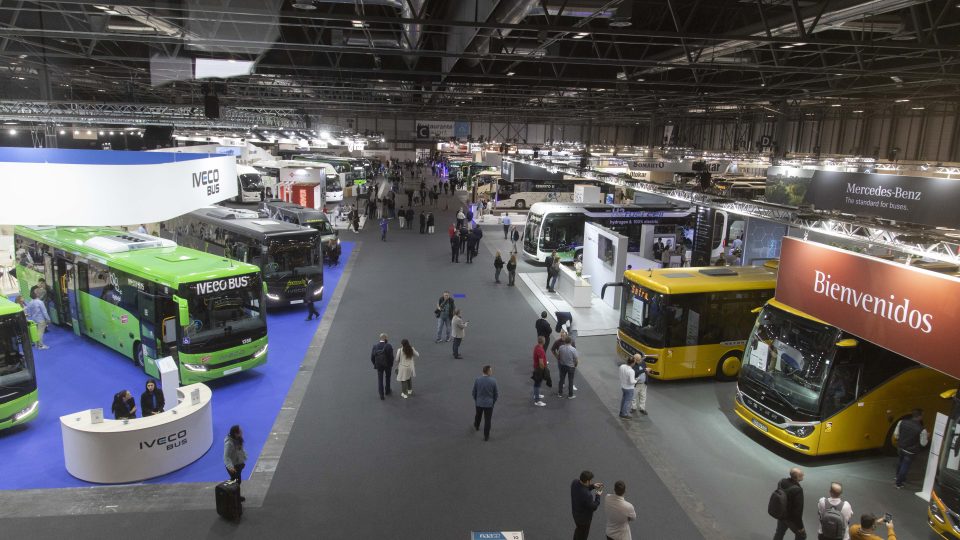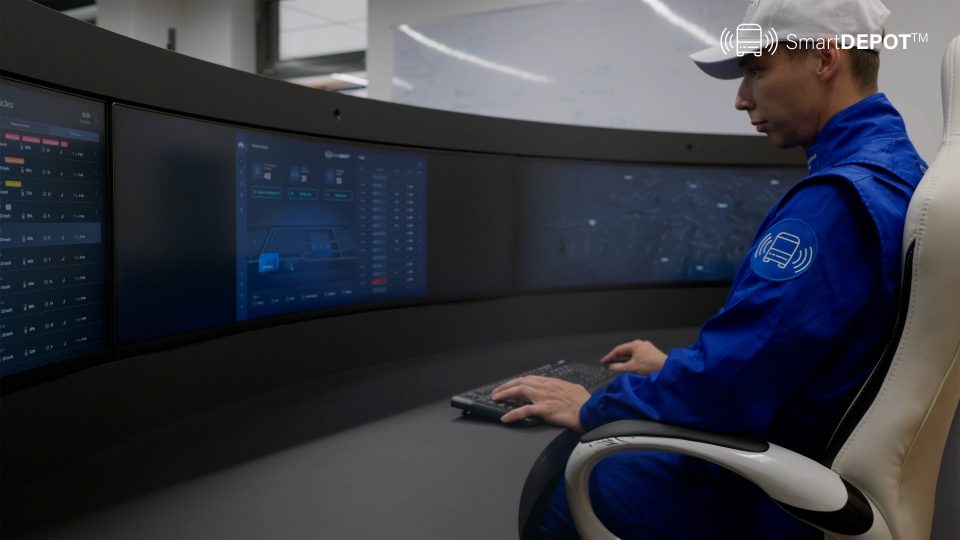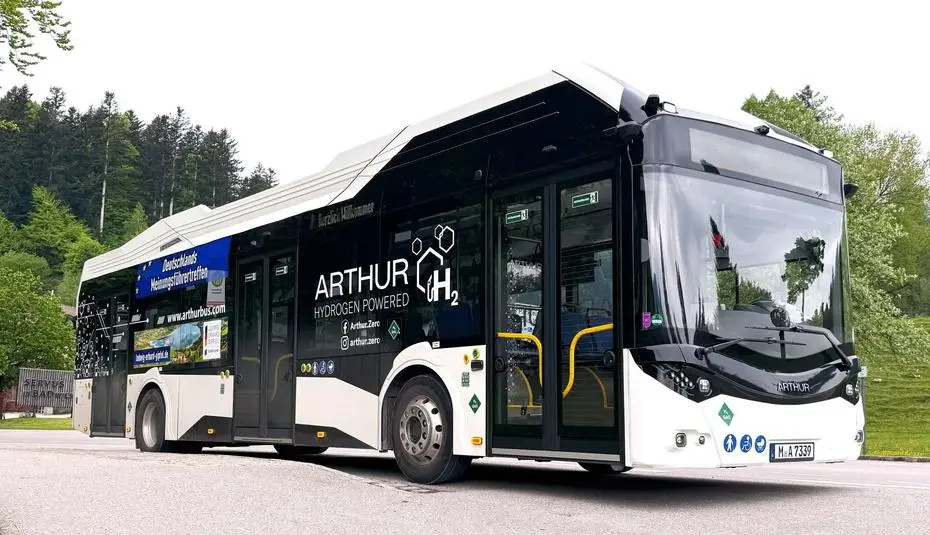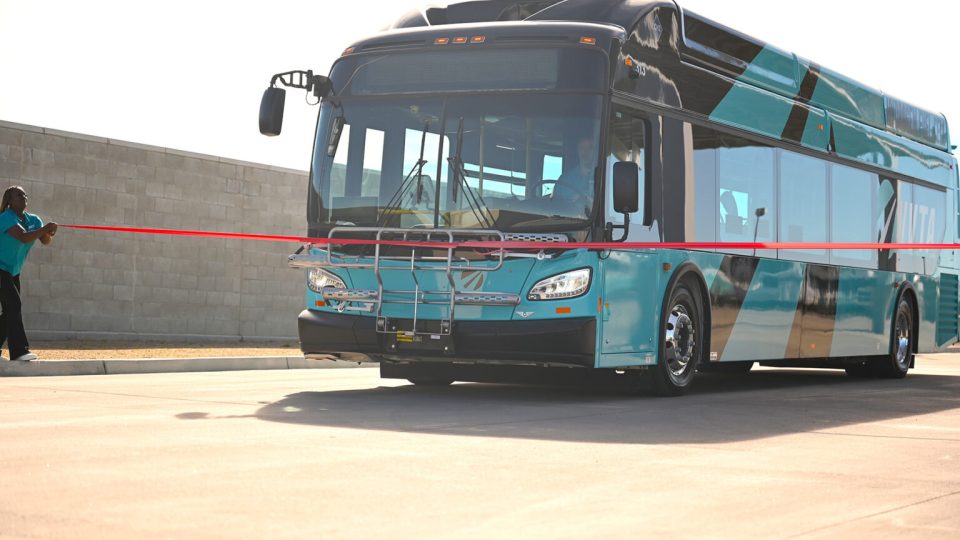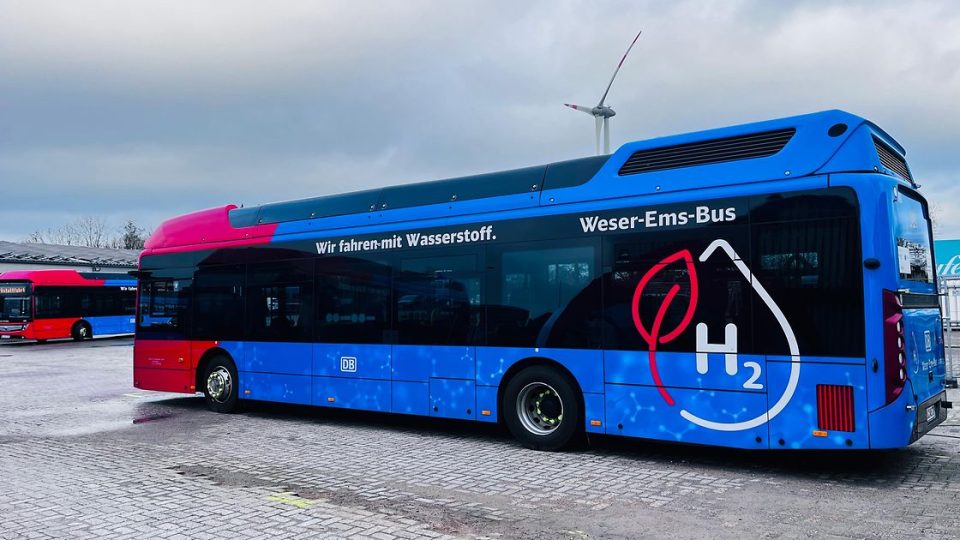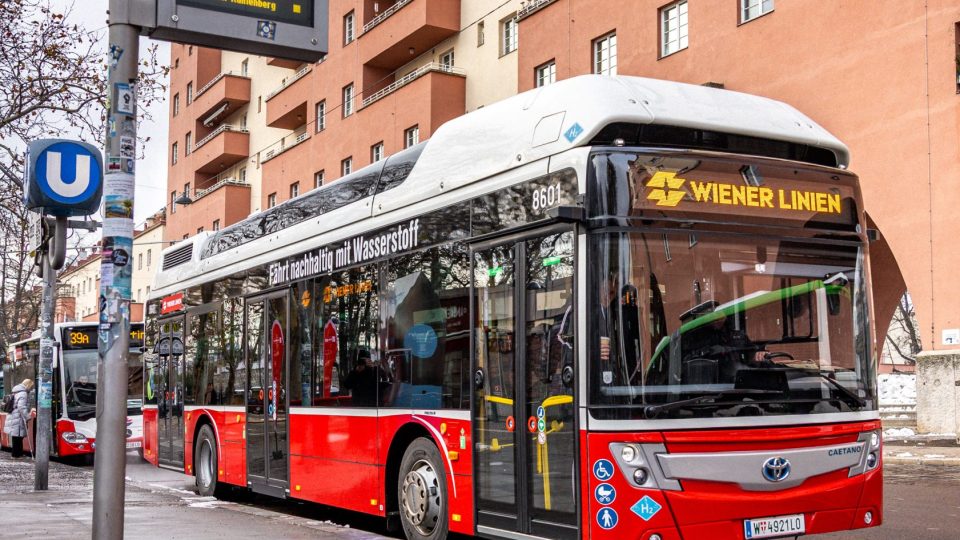How fuel cell buses can add value to your zero-emission fleet as German Ministry of Transport launches funding programme
When it comes to selecting the appropriate drivetrain for your bus fleet, it is important to consider the benefits and drawbacks each presents – and consequently which type of zero-emission technology will be the most efficient for passenger service requirements, duty cycle, refuel/recharge time, depot operations, and ability to navigate the terrain and climates of the routes your buses travel. FCEBs are the only vehicles that can deliver a true one-for-one replacement of diesel buses in a fleet, while delivering all the benefits of zero-emission operation – no tailpipe pollutants or greenhouse gases – without compromising service.
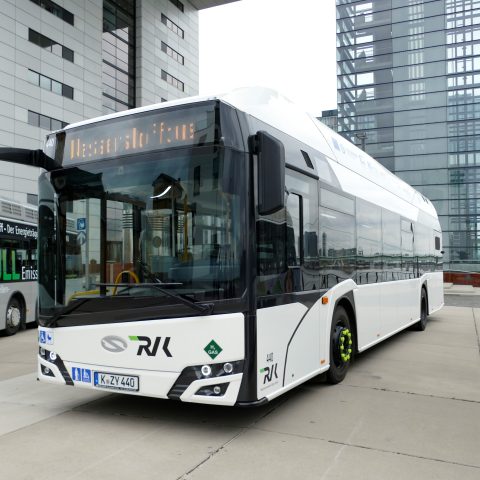
Authored and sponsored by Ballard Power Systems.
Source picture: Ballard Power Systems
Accelerating the transition of public transport mobility to zero-emission technology, applications, and infrastructure, the German Federal Ministry of Transport (BMV) launched the latest call for proposals under its flagship bus funding programme on July 7, 2025.
Representing its fourth round of requests, the initiative provides competitive grants for the procurement of fuel cell electric buses (FCEBs), battery electric buses (BEBs), and the conversion of existing diesel-powered transit vehicles to alternative decarbonized powertrains – and is open to all eligible transport agencies and bus operators across Germany.
Choosing the right fleet
When it comes to selecting the appropriate drivetrain for your bus fleet, it is important to consider the benefits and drawbacks each presents – and consequently which type of zero-emission technology will be the most efficient for passenger service requirements, duty cycle, refuel/recharge time, depot operations, and ability to navigate the terrain and climates of the routes your buses travel.
FCEBs are the only vehicles that can deliver a true one-for-one replacement of diesel buses in a fleet, while delivering all the benefits of zero-emission operation – no tailpipe pollutants or greenhouse gases – without compromising service. With refuelling times of just 10-15 minutes (as opposed to several hours for battery electric charging) and ranges of 480-725km per fill, FCEBs are especially well suited for long, high-utilization routes. Additionally, ongoing investments in fuel cell engines, hydrogen tanks, and electric drivetrains will reduce costs to the operator over time.
A seamless operational transition
From an operational standpoint, FCEBs provide a seamless transition from internal combustion buses to zero-emission alternatives, without compromising performance. These hydrogen-powered buses offer the benefits of electric drivetrains – such as high torque, quiet operation, and regenerative braking – but with on-board power generation, ensuring consistent performance even on demanding routes and in challenging weather conditions.
The operational benefits and environmental imperatives leave no doubt: the shift to zero-emission transit is irreversible. Across Europe and other global regions operators are abandoning internal combustion powertrains in favour of fully decarbonized fleets. Today, there are over 1,000 FCEBs deployed in more than 50 cities across Europe on various routes and in a range of climates and conditions.
With continuous investment in technology, electric powertrain hybridization has led to significant improvements in the performance of FCEBs – with lower fuel economy and reliability, similar to alternative zero-emission bus options.
FCEBs offer a clear path forward – and the long-term objective of 100% emission-free transit remains unchanged. Our cities deserve cleaner air and a sustainable transit future.
The scope for funding
The BMV’s funding programme is a core scheme of the German coalition agreement, promoting the adoption and scaling up of climate-neutral innovation to drive public transport nation-wide.
It can provide up to 80% of the incremental cost difference of FCEBs or BEBs versus a conventional diesel bus, and up to 40% of eligible infrastructure costs. A project’s viability for financial support is evaluated on anticipated CO2 reductions, electrification rate of the fleet, operational context, and financial need.
Proposals for support can be submitted via the federal funding portal until August 31, 2025 – with approvals set to be confirmed once the 2025 Federal Budget Act takes effect in Autumn 2025.
For more information about the current landscape and funding process, click here (in German).

